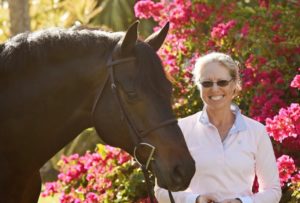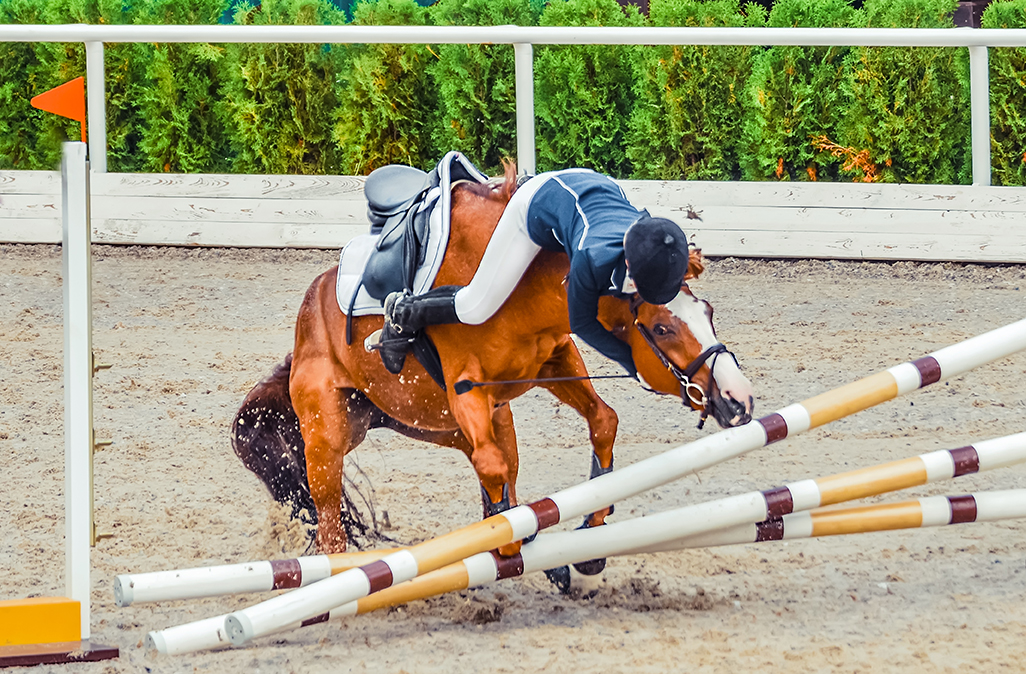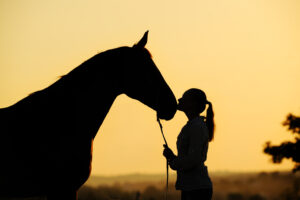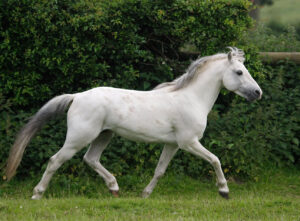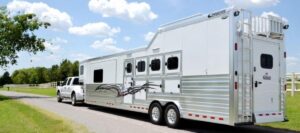Injured Camper Can Sue Horse Owner — Novice Rider Held Not To Assume Risk That Horse Was Inappropriate
A California appellate court allowed the lawsuit of an injured child to go forward on the theory that in supplying horses to a children’s camp for novice riders, the owner of those horses is duty bound to provide horses appropriate for the skill level of the intended riders.
The injured child was a totally inexperienced horseback rider attending a Girl Scout camp that offered riding lessons. During her first week of camp, she was assigned to ride a horse named “Quarter,” and at some point was instructed to tie him to a hitching post. While attempting to tie the horse, it spooked, causing her fingers to be caught in the rope. She lost two fingers as a result of the accident. She and her parents filed suit against Quarter’s owner, among others, under the theory that he was negligent in supplying Quarter to the camp when he knew or should have known that the horse was head-shy and thus dangerous for handling by children.
Although a trial court initially dismissed the child’s claim against Quarter’s owner, an appellate court reinstated the lawsuit after concluding that the doctrine of assumption of risk did not apply. “There may be no duty to provide ‘ideal’ horses to a children’s camp; it is as impossible to prevent a horse from ever ‘spooking’ as to ‘hold back the power of the sea’ in Lupash. Nevertheless, there is a duty [to] provide horses [appropriate] for beginning riders to a children’s camp for novice riders. We cannot find that inexperienced children riding at camp for the first time assume the risk of horses that are inappropriate for their skill level. . . . If it can be shown that [Quarter’s owner] increased the risk of harm to [the child] above that normally associated with learning to ride horses at a Girl Scout camp, by either providing a horse inappropriate to the skill level of the novice riders or failing to warn of the horse’s unusual and unsafe disposition, the doctrine of assumption of the risk does not apply.”
Injured Rider Must Prove “Vicious Propensities” Of Horse
A New York court has refused to accept the bare allegations of an injured rider that the horse from which she fell had “vicious propensities” that make her trainer and the horse’s owner liable for her injuries.
The injured rider was a middle-aged woman who had been taking riding lessons once or twice a week for about a year. Her trainer had taught her to walk, trot, canter and jump small jumps. After one particular lesson on a horse named “Sweetie,” the rider asked if she could continue to ride to “practice.” The trainer advised the rider that she had another lesson to give and would be unable to unable to supervise her “practice.” Nonetheless, the trainer mounted the rider on an “easy going” and “perfect” horse named “Bailey.” Bailey belonged to a child and the trainer allegedly allowed other small children to ride the horse frequently.
Although the rider was wearing a helmet, she sustained a serious concussion and suffered amnesia as a result of falling off of Bailey and was not able to recall any details of the accident. The trainer testified that she did not witness the entire event, but heard the rider scream. By the time the trainer turned around, the rider was “leaning off the right side so she was not straight any more so she was halfway off the horse and then fell.” There was no allegation that the saddle had moved or become loose in any way or that there had been any other problem with the equipment on the horse that day.
The trainer and Bailey’s owner defended the lawsuit on the grounds that the rider had assumed the risk of her injury. The rider countered that Bailey had “vicious propensities” and thus her claim could not be dismissed on the grounds of assumption of risk. The court found the rider’s argument to be completely without merit because she had done nothing more than allege that the horse had “vicious propensities”: she offered no examples of any incidents where Bailey had engaged in any type of activity “which demonstrates the vicious activities in horses,” such as kicking or biting.
Concluding that the rider had failed to meet her burden to show that the horse was vicious, the court ruled that the rider “had enough experience to know the dangers of riding and that falling off a horse was a risk associated with riding” and thus that her claims were barred by the doctrine of assumption of risk.
Her lawsuit was dismissed.
Coach Liable For “Pushing” Student Too Far, Too Fast
A case out of Georgia demonstrates the liability an athletic coach can incur when instructing students to new skill levels.
A cheerleader sustained injuries during a failed attempt at a new stunt. She sued her coach, who defended the lawsuit on the theory that she had assumed the risk of harm associated with cheerleading. After a trial court dismissed the suit in the coach’s favor, the injured cheerleader appealed. The appellate court reinstated her lawsuit, finding that she had “relied on her instructor’s knowledge and expertise to determine her progress and safety to her detriment.”
The appellate court explained that the coach had “superior knowledge of the risks” of the stunt and permitted the class to perform the stunt on an asphalt surface in violation of recommended safety guidelines. The court distinguished the case from a 1997 horse case where an experienced horsewoman was thrown from a horse she’d ridden in the past. There, the court explained, the injured rider did not rely exclusively on her trainer’s assurance that she’d “be fine” with the horse, since in choosing to ride the horse she had had her own knowledge, experience and training to draw upon. On the other hand, the cheerleader “was not experienced in cheerleading stunts . . . and was not knowledgeable about the safety guidelines or appropriate progression of skills necessary to perform the [stunt] safely.”
The cheerleader’s lawsuit against her coach was allowed to proceed.
“Young” and “Untrained” Animal Can Be Dangerous?
Can a young, untrained and overly friendly animal be “dangerous” enough to sustain a lawsuit against its owners? There appears to be disagreement on the question.
An elderly North Carolina woman was seriously injured when she was knocked over and vigorously licked by a large puppy. A jury ordered the puppy’s owner to pay the woman $20,000. The puppy’s owner appealed.
The appellate court set aside the award, explaining that “in a negligence action against an owner of a domestic animal, the test for liability is whether the owner knew or should have known from the animal’s past conduct, including acts evidencing a vicious propensity, or the general propensities exhibited by this type of animal, that the animal is likely, if not restrained, to do an act from which a reasonable person, in the position of the owner, could foresee that an injury to the person or property of another would be likely to result.
“In this case, upon entering the [owner’s place of business, the] dog jumped on her, knocked her down and then proceeded to lick her face.” There was, however, no evidence regarding either the dog’s breed, its general habits, character or propensities, or any past similar conduct by the dog. Accordingly, the elderly woman lost her case.
One of the judges who heard the case disagreed, and wrote a dissenting opinion in which he explained at length that he believed a large, young and untrained dog was dangerous nonetheless. “Knowledge of the general propensities of an untrained puppy includes the fact that such animals are easily excitable and unpredictable. Coupled with the fact that the dog was large and unrestrained, [its owner] could reasonably anticipate that the animal might jump up onto persons without warning.” Accordingly, this judge felt that the jury had properly decided the case. He was, however, in the minority, and at the end of the day the puppy’s owner escaped liability for her exuberant companion.
©2022 by Krysia Carmel Nelson, Esq.

